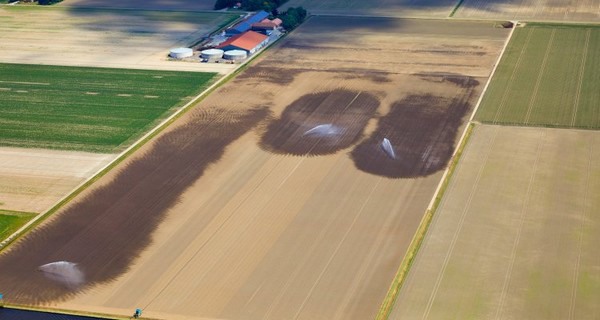Over the next ten years, the Dutch government will invest 42 million euros in CROP-XR, a new, virtual institute aimed at developing agricultural crops that are more resistant to climate change and less dependent on plant protection products. The Dutch Cabinet announced the investment, made from its National Growth Fund, today. Wageningen University & Research is one of the initiators of CROP-XR.
"We are very pleased that the Dutch government has recognized that the breeding of resilient crops is both an opportunity for the national economy and important for sustainable agriculture and food security worldwide," said Guido van den Ackerveken, a professor at Utrecht University and leader of the public-private consortium behind CROP-XR, in response to the cabinet decision.

"Achieving the goal of CropXR is a huge challenge and we are looking forward to working with colleagues in various fields to implement the knowledge we have gained both in practice and in our teaching. In the start-up phase, we have already experienced the added value and synergy of working together with various universities and private partners in this field," says molecular biologist and professor Richard Immink. Together with his fellow professors Christa Testerink (plant physiology) and Dick de Ridder (bioinformatics) and associate professor of bioinformatics Aalt-Jan van Dijk, he is part of the CropXR core team on behalf of WUR.
Extra 'resilience' needed due to climate change and sustainable agriculture
Rapid development of extra-resilient crops is an urgent need worldwide because in many places climate conditions are becoming more extreme. At the same time, due to stricter environmental regulations, farmers will be less able to use chemical fertilizers and crop protection products to protect plants against environmental threats (such as heat, drought, flooding, and pathogens).
Only with more robust crops will agriculture and horticulture be able to sustainably grow sufficient food and other crops for a growing world population in future decades.
Integrating Plant Biology and Artificial Intelligence
In CROP-XR, prominent Dutch research groups together with leading Dutch plant breeding companies will develop a revolutionary method to make crops more resilient more quickly.
By innovatively integrating modern plant biology with artificial intelligence (AI) and functional modeling, they will learn to understand and predict how plants can better withstand stress conditions thanks to a complex interplay of genetic factors. This knowledge will then be used to develop stronger, more resilient varieties of several model crops, that can be grown sustainably.
With existing methods, this development would be very difficult and take much longer. The new method can be applied to 'new breeding methods' but to classical forms of plant breeding as well.
Infrastructure, education, marketing, and social cooperation and dialogue
CROP-XR will also promote the widespread application of its new method in many different crops. The faster breeding companies will bring seeds, bulbs, tubers, and other starting materials for resilient crops onto the world market, the sooner and the more farmers will be able to benefit.
To stimulate application, CROP-XR will manage and boost an efficient Dutch 'innovation ecosystem' in which education and government also play a role. The institute will invest in nationally shared data infrastructure and will help Dutch educational institutions to train professionals of the future.
CROP-XR will also focus on cooperation and dialogue with other parties that have an interest in resilient crops, such as farmers, consumers, and environmental and development organizations at home and abroad.
 For more information:
For more information:
Wageningen University & Research
www.wur.nl
